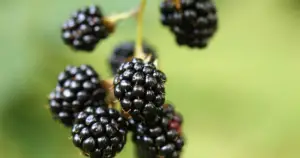Is Kombucha Gluten-Free?

“You are what you eat!” Food has the potential to be either the safest type of medicine or the slowest kind of poison. On this note let us look into the benefits of gluten-free kombucha.
Many people don’t know how kombucha is manufactured or what’s in it, even though it’s been enjoyed by millions of people around the world for centuries. Knowing if a product contains gluten is crucial for anyone with Celiac disease or gluten sensitivity. As a result, you may constantly ask, “Is kombucha gluten-free?”
Gluten, according to some sources, is safe for everyone except those who have celiac disease. Some health specialists, on the other hand, believe that gluten is fraught with risk. In this blog, we look into whether kombucha is gluten-free, as well as the many flavors, benefits, and ingredients.
What is a gluten-free diet?
Many diets gain popularity as a result of celebrity endorsements (think Beyonce’s 22 days vegan diet or Megan Fox’s 5 Factor Diet) or economic success (think Alkaline Diet and the South Beach Diet). Others, namely the gluten-free diet, sprang from a genuine medical need. Click here if you are interested in knowing the Alkaline diet foods list.
Celiac disease is treated mostly through a gluten-free diet. Many others who do not have this issue are also going gluten-free for health reasons. Firstly, keep in mind: If you’re going gluten-free, you should be aware that it can result in nutritional deficiency. To comprehend what a gluten-free diet means, we must first familiarise ourselves with gluten.
Gluten is a protein that can be found in grains such as rye, barley, and wheat. Gluten eating can be bad for those with celiac disease. These people, as well as others with gluten-related medical issues, should follow a gluten-free diet.
Gluten-free diets are said to help with energy, health, and weight loss. However, because such a diet alters your dietary nutrient intake, it is not recommended to begin a gluten-free diet without first consulting a health expert.
Gluten-related issues are not all created equal, medically speaking. Celiac disease and non-celiac gluten sensitivity are two prevalent gluten-related conditions that might create confusion.
You can look at the distinctions between the two and how a gluten-free diet can help both of these conditions, as well as a few others. Now let us look at the relationship between kombucha and gluten.
What is Kombucha and what’s in it for the gluten-free?
Kombucha is tea. Yes! For those who are new to the introduction of kombucha, you’ve heard it right! Kombucha is a fermented tea. It not only has the same health benefits as tea, but it’s also high in probiotics.
Kombucha also comprises antioxidants, can kill dangerous germs, and may aid in the treatment of various conditions. Kombucha is believed to have originated in either China or Japan.
So if you ask can kombucha help with gluten intolerance? Then yes! It’s prepared by infusing black or green tea with specialized strains of bacteria, yeast, and sugar, then allowing it to ferment for a week or longer [1].
Bacteria and yeast develop a mushroom-like coating on the liquid’s surface during this procedure. Kombucha is often called “mushroom tea” because of this. This blob, also known as a SCOBY, is a living symbiotic colony of bacteria and yeast that may be utilized to ferment new kombucha. Since kombucha is created with simple sugar, tea, and a starter culture, it is inherently gluten-free.
Is all kombucha gluten-free?
When it comes to commercialized items, nevertheless, you should do your research and carefully read the labels to ensure you know exactly what you’re getting. Another excellent benefit to making your own kombucha is that you can control what goes into the finished product, in addition to saving money.
Let us now look at the ingredients and the possible benefits of gluten-free kombucha.
Also Read: Is Sake gluten free?
What are the ingredients of Kombucha?
Kombucha is made up of yeast, sugar, and black tea. The mixture is kept away for a week or more. During this period, bacteria, acids, and a little amount of alcohol develop in the liquid.
This process, which is similar to how cabbage is preserved as sauerkraut or kimchi, or milk is converted into yogurt and is known as fermentation. A SCOBY is a film produced on top of a liquid by bacteria and acids (symbiotic colony of bacteria and yeast).
This film is formed over kombucha when it is kept for fermentation. More kombucha can be fermented with a SCOBY. Kombucha microbes contain lactic-acid bacteria, which can work as a probiotic. Kombucha contains a significant amount of B6 vitamins.
What are the benefits of gluten-free Kombucha?
Kombucha is high in antioxidants, can destroy harmful germs, and may aid in the treatment of various conditions. Based on scientific facts, here are the top 5 potential health benefits of kombucha.
Kombucha may offer the benefits of green tea
Green tea is one of the healthiest beverages on the globe. This is because green tea contains bioactive components like polyphenols, which work as powerful antioxidants in the body [2].
Green tea kombucha has many of the same plant compounds as black tea kombucha, so it’s likely to provide some of the same health benefits. Green tea consumption has been shown in studies to increase calorie burn, reduce belly fat, lower cholesterol, improve blood sugar control, and more [3, 4, 5].
Kombucha may help manage Type 2 Diabetes
Over 300 million people worldwide have type 2 diabetes. High blood sugar levels and insulin resistance are common symptoms [6]. In a study of diabetic rats, kombucha slowed carbohydrate digestion, lowering blood sugar levels. It also improved the function of the liver and kidneys [7].
Green tea kombucha, on the other hand, is likely to be even more healthy, as green tea has been demonstrated to lower blood sugar levels [8].
| To learn more about the benefits of kombucha for blood sugar control, more human research is necessary. |
Kombucha may help to reduce inflammation
According to a June 2019 article in StatPearls, chronic inflammation is linked to almost every health problem, notably in heart disease, diabetes, arthritis, allergies, and respiratory ailments including chronic obstructive pulmonary disease (COPD) [9].
Although kombucha isn’t a first-line treatment for any chronic disease, it can help you maintain a balanced diet, lifestyle, and medication regimen. This is due to the presence of polyphenols in the teas used to prepare kombucha, which are antioxidants that can help reduce inflammation in the body.
According to a review published in 2015 in Microbial Ecology in Health and Disease, there is a widespread perception in the scientific community that eating gut-friendly foods can help suppress inflammation in the intestinal tract, and kombucha, in particular, can help with this [10].
Kombucha may reduce cardiovascular risk
Heart disease is considered the major cause of death worldwide. In as little as 30 days, rat studies demonstrate that kombucha can dramatically improve two heart disease markers, “bad” LDL and “good” HDL cholesterol [11].
Tea (particularly green tea) also protects LDL cholesterol particles from oxidation, which is suspected to have a role in heart disease. Green tea drinkers, for instance, had a 31% decreased risk of heart disease, a perk that may also relate to kombucha [12].
Kombucha may protect against cancer
Cancer is one of the causes of morbidity and mortality worldwide. It is characterized by unregulated cell proliferation and cell mutation. Due to its high content of tea polyphenols and antioxidants, kombucha helped prevent the growth and spread of malignant cells in test tubes [13].
Tea polyphenols’ anti-cancer capabilities aren’t completely known. Polyphenols, on the other hand, are thought to inhibit gene mutation and cancer cell proliferation while also boosting cancer cell death. As a result, it’s no surprise that tea drinkers have a lower risk of developing certain cancers [14].
Is kombucha dairy-free?
Kombucha is naturally vegan and vegetarian. Kombucha is made by fermenting tea with a combination of yeast, bacteria, and sugars. The flavors are either introduced after the fermentation process or soaked with the tea during the fermentation process, depending on the brewer.
Fruits, botanicals, spices, and herbs can all be used as flavors, and they’re all vegan and vegetarian. For our vegans, this is where things may go wrong. If the kombucha maker decides to sweeten it with honey, Boom! The kombucha is no longer vegan, although it is still vegetarian.
If you’re a staunch vegan, we recommend sticking to kombuchas that have all of the ingredients listed on the label. Just because it says “natural sweeteners” on the label doesn’t guarantee it was made with vegan cane sugar.
Non-vegan cane sugar, honey, maple syrup, juice concentrates, stevia, sucralose, and a variety of other “oses” could all be culprits.
FAQs
Q: Is kombucha good for celiacs?
A: As a consequence of a final Food and Drug Administration rule for foods with these ingredients, celiac disease patients can eat yogurt, pickles, sauerkraut, and other fermented and hydrolyzed items labeled gluten-free without concern of them containing gluten.
Q: Is kombucha alcohol gluten-free?
A: Don’t worry, high-alcohol kombucha is a great gluten-free alternative to your favorite fizzy alcoholic beverage. It’s also low in calories and has a lot of health benefits.
Q: Is coffee gluten-free?
A: If coffee beans are processed in a shared facility or on equipment that also handles gluten-containing substances, they might become cross-contaminated.
Q: Does kombucha help you lose weight?
A: While the components of green tea in kombucha might help with overall health and may even promote weight loss, it’s not a magic pill or weight-loss potion.
Q: Is kombucha good for IBS?
A: The carbon dioxide in kombucha, like any carbonated beverage, can cause stomach issues if consumed in excess or too quickly. Drinking fizzy, gaseous beverages can make you gassy as well, straining the belly and potentially causing bloat and pain.
Q: Does kombucha have caffeine?
A: Since the tea leaves used to prepare kombucha (black, green, white, and oolong) naturally contain caffeine, kombucha is caffeinated. Although kombucha contains caffeine, it is in very little amounts.
Wrapping up
Many people feel kombucha can help with a variety of chronic health issues. However, there are few human studies on the effects of kombucha, and evidence for its health benefits is limited.
The perks of tea and probiotics, both of which are found in kombucha, are, on the other hand, well-documented.
If you’re going to make your own kombucha, be sure it’s done correctly. Contaminated kombucha has the potential to do more damage than good. You can also read is pectin gluten-free? And is peanut butter gluten-free? to know more about gluten-free products.
References
- Chakravorty, Somnath et al. “Kombucha tea fermentation: Microbial and biochemical dynamics.” International journal of food microbiology vol. 220 (2016): 63-72.
- Serafini, M et al. “In vivo antioxidant effect of green and black tea in man.” European journal of clinical nutrition vol. 50,1 (1996): 28-32.
- Villarreal-Soto, Silvia Alejandra et al. “Understanding Kombucha Tea Fermentation: A Review.” Journal of food science vol. 83,3 (2018): 580-588.
- Dulloo, A G et al. “Efficacy of a green tea extract rich in catechin polyphenols and caffeine in increasing 24-h energy expenditure and fat oxidation in humans.” The American journal of clinical nutrition vol. 70,6 (1999): 1040-5.
- Nagao, Tomonori et al. “A green tea extract high in catechins reduces body fat and cardiovascular risks in humans.” Obesity (Silver Spring, Md.) vol. 15,6 (2007): 1473-83.
- Tabish, Syed Amin. “Is Diabetes Becoming the Biggest Epidemic of the Twenty-first Century?.” International journal of health sciences vol. 1,2 (2007): V-VIII.
- Aloulou, Ahmed et al. “Hypoglycemic and antilipidemic properties of kombucha tea in alloxan-induced diabetic rats.” BMC complementary and alternative medicine, (2012), vol. 12 63.
- Liu, Kai et al. “Effect of green tea on glucose control and insulin sensitivity: a meta-analysis of 17 randomized controlled trials.” The American journal of clinical nutrition vol. 98,2 (2013): 340-8.
- Pahwa R, Goyal A, Bansal P, et al. Chronic Inflammation, “StatPearls”, (2021).
- Carding, Simon et al. “Dysbiosis of the gut microbiota in disease.” Microbial ecology in health and disease, (2015), vol. 26 26191.
- Aloulou, Ahmed et al. “Hypoglycemic and antilipidemic properties of kombucha tea in alloxan-induced diabetic rats.” BMC complementary and alternative medicine, (2012), vol. 12 63.
- Shimazu, Taichi, et al. “Dietary patterns and cardiovascular disease mortality in Japan: a prospective cohort study.” International journal of epidemiology vol. 36,3 (2007): 600-9.
- Cetojevic-Simin, D D et al. “Antiproliferative and antimicrobial activity of traditional Kombucha and Satureja montana L. Kombucha.” Journal of B.U.ON. : official journal of the Balkan Union of Oncology vol. 13,3 (2008): 395-401.
- Fujiki, Hirota et al. “Green tea: cancer preventive beverage and/or drug.” Cancer letters vol. 188,1-2 (2002): 9-13.
![Blue Foods List [with pictures]](https://keevs.com/wp-content/uploads/2023/03/Blue-Foods-List-with-pictures-300x158.png)






